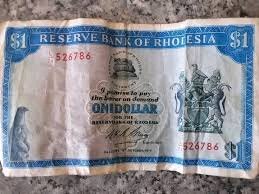Cypriots banks reopen on Thursday with tight controls imposed on transactions to prevent a run on deposits after the government was forced to accept a stringent EU rescue package to prevent the country from going bankrupt.
Banks were shut almost two weeks ago as the government negotiated a 10 billion euro ($13 billion) bailout package, the first in Europe's single currency zone to impose losses on bank depositors.
Bank staff turned up for work early in Nicosia as cash was delivered by armored trucks. At a branch of the second-biggest lender, Cyprus Popular Bank, in central Nicosia, staff were being briefed before opening at noon (1000 GMT). The new opening hours were displayed in a hand-written notice taped to the door.
Authorities say the emergency rules imposed to limit withdrawals and prevent a bank run will be temporary, but economists say they will be difficult to lift as long as the economy is in crisis.
In Nicosia there was relief that the banks were reopening, but some apprehension about what might happen.
Yorgos Georgiou, who owns a dry cleaning business, said: "Finally people's mood will be lifted and we can start to trust the system again."
But he added: "I'm worried about the poor kids working in the cashiers today, because people might vent their anger at them. You can't predict how people will react after so many days."
One man, Kostas Nikolaou, a 60-year-old pensioner, said the uncertainty of the past two weeks had been "like a slow death".
He added: "How can they tell you that you can't access your own money in the bank? It's our money, we are entitled to it."
The Cyprus stock exchange said it would remain closed on Thursday.
On Wednesday night, container trucks loaded with cash pulled up inside the compound of the central bank in the capital Nicosia to prepare for the reopening, a Cyprus central bank source said. A helicopter hovered overhead, and police with rifles were stationed around the compound.
As in all countries that use the euro, Cyprus's central bank supplies cash for its banks from the European Central Bank in Frankfurt. Officials have promised that enough funds will be on hand to meet demand. The ECB did not comment on reports it had sent extra cash to the island.
A Finance Ministry decree imposes strict controls limiting cash withdrawals to no more than 300 euros per day and banning the cashing of cheques.
The island's central bank will review all commercial transactions over 5,000 euros and scrutinize transactions over 200,000 euros on an individual basis. People leaving Cyprus can take only 1,000 euros with them. An earlier draft of the decree had put the figure at 3,000.
With just 860,000 people, Cyprus has about 68 billion euros in its banks - a vastly outsized financial system that attracted deposits from foreigners as an offshore haven but foundered after investments in neighboring Greece went sour.
The European Union and International Monetary Fund concluded that Cyprus could not afford a rescue unless it imposed losses on depositors, seen as anathema in previous euro zone bailouts.
"CYPRUS EURO"
Cyprus's financial difficulties have sent tremors through the already fragile single European currency. The imposition of capital controls has led economists to warn that a second-class "Cyprus euro" could emerge, with funds trapped on the island less valuable than euros that can be freely spent abroad.
The finance ministry decree said the measures had been imposed for seven days, after a central bank official had initially said the period would be four days, subject to review.
Many experts are skeptical. In a Reuters poll of economists this week 30 out of 46 said the controls would last months, while 13 expected they would endure a matter of weeks. Three said they could last years.
"This is a typical set of exchange control measures, more reminiscent of Latin America or Africa," said Bob Lyddon, General Secretary of the international banking association IBOS.
"These are permanent controls until the economy recovers."
The bailout, agreed in Brussels on Monday, looks set to push Cyprus deeper into an economic slump, shrink the banking sector and cost thousands of jobs.
Cyprus Popular Bank will be closed and its guaranteed deposits of up to 100,000 euros transferred to the biggest bank, Bank of Cyprus.
Deposits of more than 100,000 euros at both banks, too big to enjoy a state guarantee, will be frozen, and some of those funds will be exchanged for shares issued by the banks to recapitalize them.
While big depositors will lose money, the authorities say deposits up to 100,000 euros will be protected. The Cypriot parliament had vetoed an earlier plan that would also have hit small depositors.
European leaders said the bailout deal averted a chaotic national bankruptcy that might have forced Cyprus out of the euro. Many Cypriots say the deal was foisted upon them by Cyprus's partners in the 17-nation euro zone, and some have taken to the streets to vent their frustration.
On Wednesday, some 2,500 people rallied outside the offices of conservative President Nicos Anastasiades, waving banners and flags. They chanted: "I'll pay nothing; I owe nothing."
For now, residents say they are confused and worried by the capital controls, and wonder how they will affect daily life.
A 42-year-old Romanian hotel maid, who gave her name as Maria, said she was worried she would not be able to cash her pay cheque due on Friday. The hotel, she said, was unable to pay staff in cash because most guests paid by credit card.
"What shall I do?" she asked. "Hold up the cheque and look at it?"
($1 = 0.7824 euros)
- Reuters
 Zimbabwe launches new airline
Zimbabwe launches new airline  Hichilema meets Chivayo
Hichilema meets Chivayo  Millions celebrate Diwali festival in India
Millions celebrate Diwali festival in India  SA bitcoin firm mulls Zimbabwe listing
SA bitcoin firm mulls Zimbabwe listing  Gold edges up as traders await guidance
Gold edges up as traders await guidance  Airlink applies for Lanseria to Harare, Bulawayo route
Airlink applies for Lanseria to Harare, Bulawayo route  Young Investment Professional (YIP) Graduate Programme 2019
Young Investment Professional (YIP) Graduate Programme 2019 










 Young Investment Professional (YIP) Graduate Programme 2019
Young Investment Professional (YIP) Graduate Programme 2019
Editor's Pick